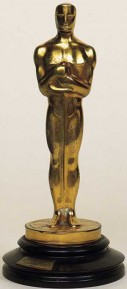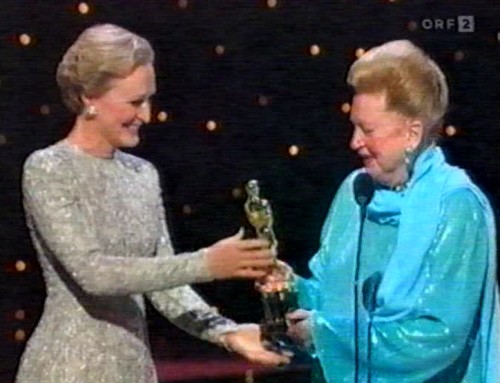The Motion Picture Academy does an injustice not only to the recipients but to their worldwide fans by continuing its new policy of presenting honorary Oscars, the Thalberg and other special awards at a special function in November instead of the Academy Awards ceremony next February on ABC.

In the announcement by Academy President Tom Sherak that Francis Ford Coppola will get the Irving Thalberg Award and that renowned character actor Eli Wallach and director Jean-Luc Godard will get special Oscars, along with historian Kevin Brownlow, one can't dispute the selections, but one can sure question the means of delivery.
The special awards, in particular the honorary Oscars, which often but not always go to previously overlooked filmmakers and actors, are a chance for motion picture colleagues and film fans in the vast audience to pay homage to their great achievements.
It is also a chance -- sometimes the last one -- for the man or woman to get a resounding cheer that reverberates across the continents.
The Academy's argument is that the awards dinner at the Hollywood and Highland complex will be an evening entirely for the honorees and that it will allow more time for a lot of speakers and film clips to do proper justice in lauding their careers.
While it's true that additional time will be spent extolling the achievements of the men, how many will see it? A select group of several hundred VIPs, that's who, for an event that should be more properly witnessed by the billion or so people the Academy Awards telecast ordinarily commands.
I had a part in the special Academy Awards that were presented to Myrna Loy and Deborah Kerr, through letter writing campaigns to elicit support from many of the colleagues of these great actresses. In the case of Myrna Loy, one of the biggest stars of the 1930s and 1940s, she had never been nominated. Deborah Kerr was not so unfortunate and had been nominated six times for her eclectic body of work in the forties, fifties and sixties. But she never got an Oscar, a record that could be a great Final Jeopardy Question: Most nominations for Best Actress who never won.
Finally, these two wonderful stars were awarded an Oscar for their careers. The Academy waited so long for Myrna Loy, who was 85, that she had to accept the prize via a live telecast from her apartment in New York City.
But Deborah Kerr was a bit younger at 72 and was healthy enough to come to the ceremony. After the short tribute speech by Glenn Close and a look at some film clips her name was announced.
When she came forward, a bit frail and blinded by the lights, the audience response was electric and they gave her a standing ovation of well over a minute, longer than Steven Spielberg's for Schindler's List or Tom Hanks, that year's winner for Best Actor in Philadelphia.
Thank God those of us who thrilled at seeing Deborah get her long awaited due (take a look) didn't have to hear about it in a newspaper the next day, and that she didn't get the treatment Lauren Bacall and Roger Corman received last year, the first time the honorary awards were so presented.
At the Academy Awards this year, a few minutes were set aside to show some moments from the previously held dinner, but when the moment came to point to Bacall and Corman, who weren't even invited on stage, as is the case of many acting Emmy winners who earlier received their awards at the Creative Arts ceremony, their names were announced and the camera showed Bacall and Corman in the audience for a second or so as the director quickly cut to a commercial.
What a travesty for them, and let's not kid ourselves or be taken in by the PR reasons the Academy has put forth as to why they're really doing it in this manner. They are trying to save air time, it's as simple as that. Yet they gave a huge and overlong tribute to John Hughes, whose career was hardly the stuff of legend, but wouldn't allow the honorary Oscar winners the chance to have their special moment. How lucky Deborah Kerr was and all the stars and directors who came before her, plus the few more who were honored later at an Oscar ceremony such as Kirk Douglas, Peter O'Toole and screenwriter Ernest Lehman.
The Academy hierarchy changes year in and year out. Let's hope its future leaders take a look at some of the tapes in the archives or the sites on YouTube, Facebook and Twitter to see just what they've given up in denying these honorees their proper Bravos and deserved standing ovations during the Academy Awards telecast and the thrill of knowing their special moment is being transmitted and enjoyed by their many, many fans throughout the planet.
Michael Russnow's website is ramproductionsinternational.com
